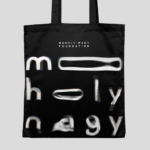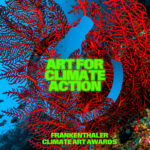
Author Archives for AndrasAdmin

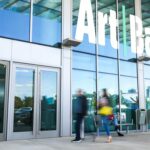
Art Basel Conversation: Re-inventing the Institution? New Museum Leaders
Leave your thoughts <p>On December 1, András Szántó moderated a talk on the future of art museums with new leaders in the field as part of Art Basel in Miami Beach’s annual Conversations series. Speakers included Johanna Burton, Director of The Museum of Contemporary Art (MOCA), Los Angeles; Isolde Brielmaier, Deputy Director, New Museum, New York; and Alison Gass, Director of The Institute of Contemporary Art San Francisco (ICA SF). Watch the recording or click here to read an excerpt of the conversation.</p>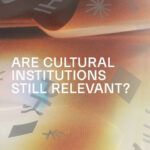
PHI Sessions 2021
Leave your thoughts <p>PHI Sessions 2021 is a two-day gathering of a range of voices concerned with the arts and culture milieu. The intent is to launch and foster a collective project to explore—through open conversation and speculative interrogations—the role and potential of the cultural institution writ large within our rapidly evolving contemporary moment. András Szántó will participate in the first of two Grounding Sessions, titled “Where are we now?,” hosted by Ken Lum with Rebecca Belmore and Yesomi Umolu. </p>
Interview: “In the 21st century universities and museums are facing the same challenge”
Leave your thoughts <p>In a recent interview with Ákos Schneider for designisso, András Szántó discusses the intersection of ideas in his recent book, The Future of the Museum, and current projects with universities such as Moholy-Nagy University of Art and Design. “On the one hand, there is no doubt that science cannot develop without specialization, and there is also no doubt that an institution must have a well-defined profile that it can communicate to the world. However, this does not mean that a certain fluidity cannot be guaranteed within its walls for those who study and work there.”</p>
Moholy-Nagy University of Art and Design Workshops
Leave your thoughts <p>Over the course of Summer 2021, András Szántó LLC conducted extensive research, including a series of workshops held in Budapest, to support a reimagining of the mission, vision, and values of MOME. Learn more about the results of this research and how it will be applied to the University’s mission and branding by watching the Facebook Live recording, featuring András in conversation with Albert-László Barabási and Gergely Böszörményi-Nagy, moderated by Nóra Winkler.</p>
Unfinished Camp Launches in New York and Basel
Leave your thoughts <p>Unfinished Camp, the inaugural art initiative from Unfinished, convenes influential arts institutions and emerging contemporary artists from the across the globe to create original works that respond to the question, What is the future of art in a decentralized world? These original works will debut to the public simultaneously at The Shed in New York at Unfinished Live and at Art Basel in Switzerland in September 2021. Unfinished Camp has brought together a global network of nine founding partner institutions, marking a groundbreaking collaboration between leading arts organizations and the emerging tech-focused artists they support.</p>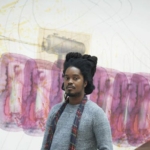
Julien Creuzet in Conversation with András Szántó
Leave your thoughts <p>On the eve of his BMW Art Journey, artist Julien Creuzet spoke with András Szántó about his goals for his trip and what motivates his socially engaged practice. “Now is the moment, with the help of BMW, for me go to Martinique and reconnect with this island and these communities, to create an experimental station; a space of freedom and safety, with generosity. It’s an important possibility for me to share my energy, too—what I have learned during the last fifteen years in a different part of the world—and to share my vision.”</p>
Leather Throwers at Bellagio Gallery of Fine Art Extended
Leave your thoughts <p>Boxing and Las Vegas are indelibly fused in the public imagination. A perfect fit for the culture of entertainment, the sport traces its history in Las Vegas back to the 1950s. Leather Throwers surveys ways in which visual artists have represented boxing motifs and the history and major figures of the sport through sculptures, paintings, drawings and photographs. The exhibition, now extended through October, features work by artists ranging from Jean-Michel Basquiat to Jeffrey Gibson.</p>
Two ASLLC Projects Featured in “Future: (Is) Now What? A Citywide Roundup of Art Basel 2021″
Leave your thoughts <p>In her roundup of exhibitions and events that took place during Art Basel 2021, Eleonora Milani touches upon the work and themes behind two ASLLC projects, Unfinished Camp and Sondra Perry‘s new work created as part of the Muse Dream Commission, an initiative of the Rolls-Royce Art Program.</p>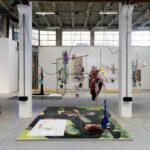
2021 BMW Art Journey Winner Announced
Leave your thoughts <p>Artist Julien Creuzet is the winner of the tenth BMW Art Journey. In a poetic journey that intertwines personal discovery with profound concern for the environment and a generous spirit of sharing, he will center his travels around a geographically and culturally distinct region and his ancestral homeland: the Caribbean. “Creuzet’s journey does not take him to a distant, unknown destination, but rather allows him to return to a familiar place–a place that for him stands for family, youth and education,” said the jury.</p>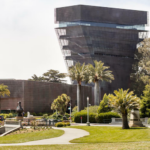
Excerpt from The Future of the Museum on Lit Hub
Leave your thoughts <p>Literary Hub has published “A Moment of Reckoning: Thomas P. Campbell and András Szántó on Museums and Public Trust,” an article featuring András Szántó’s interview with Thomas Campbell from The Future of the Museum: 28 Dialogues, published this past winter. In it, Campbell, who works as Director of the Fine Arts Museums of San Francisco, considers cow institutions can be more inclusive. </p>